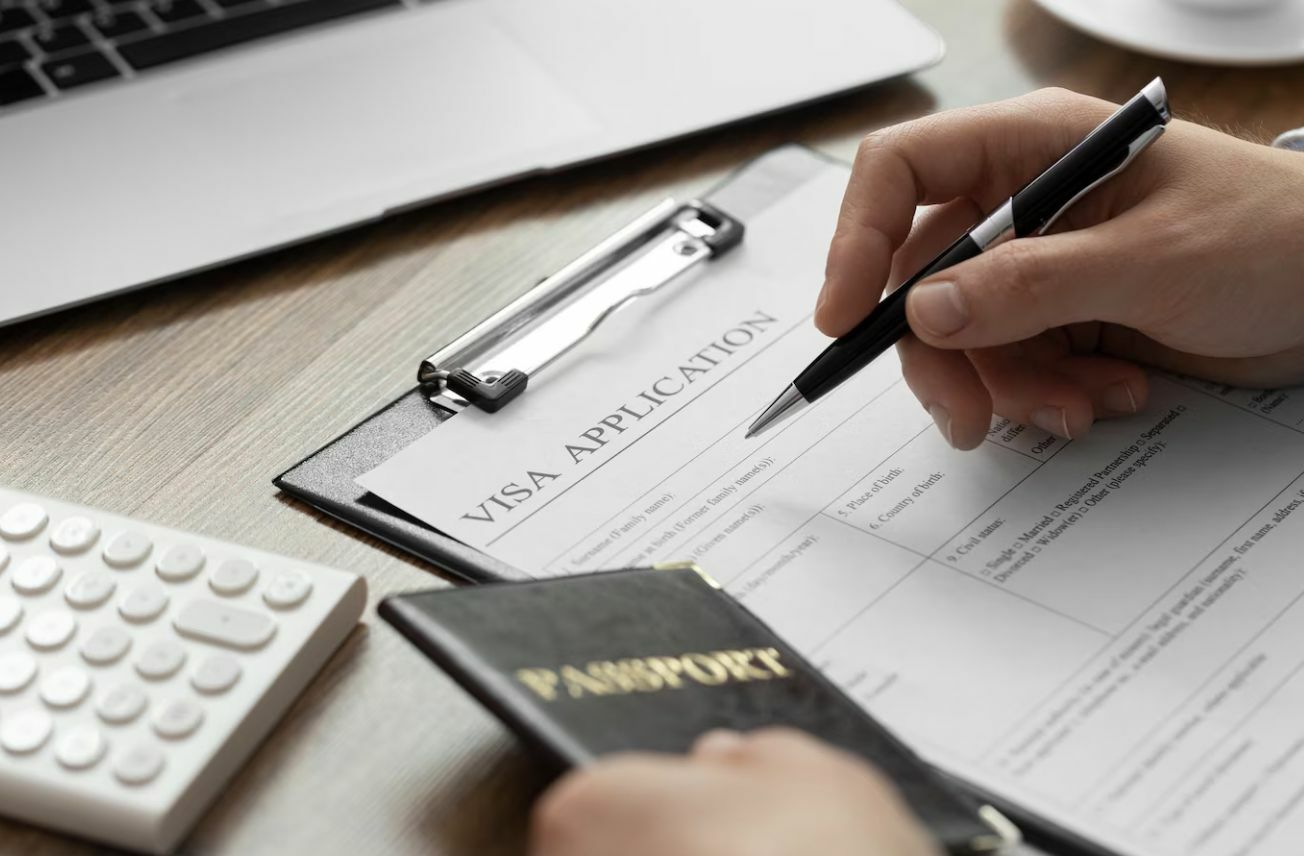What are the biggest challenges for foreigners working in Thailand?

Thailand has been among the top countries with the highest expat workers. With its flourishing economy and expanding job market, it’s no wonder why overseas professionals are irresistibly drawn to this Southeast Asian country. But while packing up your life to start anew in a foreign land, especially for work, is undoubtedly exhilarating, you must not overlook the potential hiccups that may come along the way. But remember, every problem has a solution. So to help you prepare for your journey, here are the biggest challenges for foreigners working in Thailand, and how to overcome them.
1. Securing a work permit

When you’re planning to work in Thailand, one of the first things you’ll need to do is get a work permit. This process, while necessary, can be time-consuming and complicated. A variety of documents are needed, including details of employer sponsorship. In many cases, employers are required to demonstrate that the role cannot be filled by a local candidate, which can further prolong the process.
Moreover, you’ll need to check your forms carefully before you send them in. Any missing papers can slow things down. You’ll also need to hand in your passport in person so they can put a stamp in it to show you have a work permit.
The rules about work permits can be different in different parts of Thailand. In Bangkok, you can hand your forms in at the Ministry of Labor in Din Daeng. But if you’re working somewhere else in the country, you have to go to the Employment Department in that area. Additionally, the time it takes to get a work permit can also vary. In Bangkok, you might get it in seven working days. But in some other places, like Phuket, you might be waiting up to two months. Therefore, it’s always a good idea to plan and get started early.
Check out our guide on how to obtain a work permit in Thailand.
2. Dealing with complex bureaucracy

This is related to the first point. For foreigners working in Thailand, navigating through the country’s complex bureaucratic system is a challenge that cannot be ignored. This not only includes obtaining a visa and work permit but also getting to grips with tax regulations, employment laws, and business licenses.
For instance, getting an initial, single-entry Non-Immigrant B Visa is usually straightforward. However, securing a one-year, multiple-entry visa, the longest period available for workers is not. It calls for a visit to the immigration department which can consume an entire day and may require the assistance of a lawyer or agent, as the department’s staff may not speak English. Once your visa period ends, you have to start the process anew, as there doesn’t seem to be a renewal system in place. Even with a one-year visa, you’ll observe a peculiar practice. Immigration will only stamp your passport for 90 days at a time. As a result, you’ll need to either leave and re-enter the country or report your address to immigration for an extension.
Another example is obtaining a business license. This might not be applicable if you’re an employee, but for entrepreneurs looking to start a venture, it’s an essential step. Bear in mind that the process involves going through multiple government offices and might require the assistance of local consultants.
3. Lost in translation

Language barriers are a significant challenge for foreigners working in Thailand. If you are employed in an international company, where English is commonly used, then this might not be a big problem. However, if you are working in a smaller company or if you’re teaching English in a public school, learning Thai becomes a necessity. Moreover, although English is spoken widely in urban areas, its use is less common in rural regions.
But even if you’re working for an international company, it’s still a good idea to learn Thai. Not knowing the language can create misunderstandings not just at work, but during day-to-day activities too. Think about the daily transactions with taxi drivers or food delivery personnel, interpreting public signs, or understanding cultural norms that influence regular behaviour. When you struggle to communicate or misunderstand the local language, it’s easy to feel rather lost. This is why it’s worth taking a language course before you move to Thailand, even if it’s just to learn the basics. It’ll help you settle in and find your feet much quicker.
If you’re eager to learn Thai, check out the best Thai language centres in Bangkok.
4. Culture shock

Another challenge for foreigners working in Thailand is navigating cultural differences. Thai society, rooted in Buddhism, operates on principles of respect and hierarchy. This includes the concept of ‘saving face’, or preserving personal dignity and avoiding causing others to lose theirs, which is essential to grasp as you interact with Thai colleagues. The way companies work in Thailand also reflects this. For example, those lower down the chain often don’t speak up or share ideas with their superiors.
So if you have something to say that might not be positive, it’s best to do so gently and subtly. If someone compliments you, be humble. It wins you respect.
Exchanging business cards when you first meet someone is also common in Thai business culture. It’s good manners to have a card with both Thai and English writing. And when you give someone your card, remember to use your right hand. Sometimes, people will also give small gifts to help build a relationship, though it’s not a must.
Additionally, whilst the Thai lifestyle may seem laid-back, business is an exception. Thai people expect you to be on time. They plan their meetings weeks ahead, and it’s important to stick to that. Being late is considered rude, regardless of the reason.
Navigating these cultural differences can seem a bit tricky at first. But don’t worry, over time, you’ll pick them up and start feeling more comfortable. And in the meantime, Thai people are usually very helpful and understanding.
5. Adapting to the climate

When you visit Thailand for a holiday, the warm, tropical weather can feel like a nice break from colder climates. But when you move there for work, dealing with the heat every day can become a tough job.
In Thailand, temperatures usually go over 30 degrees Celsius. For those who are used to cooler weather, getting used to this kind of heat can be hard. You also have to get used to the high levels of humidity and the tropical rains that are part of the package.
It’s not just about feeling hot, either. This sort of climate change can also affect your mind and mood. Hot weather can make you feel tired and it can be hard to keep your energy levels up. Simple things such as deciding what to wear or remembering to drink enough water become more important.
But with time, you’ll start getting used to the weather. Just remember, it’s your experience that matters – don’t worry about how fast other people are adapting. Even though it can take a while and you might have some rocky days, there’s also a bright side to tropical life, like seeing greenery everywhere and having different fruits to try. Above all, remember to be patient with yourself.
6. Challenges for the family

Moving to Thailand isn’t just a big change for you, it’s also a big change for your family if you’re bringing loved ones along. Balancing the demands of work and helping your family settle can feel overwhelming sometimes. For example, it could be challenging for your significant other to secure employment. Likewise, children may find building new friendships in a different country intimidating at first.
While these issues aren’t directly job-related, they can certainly impact your work performance and overall satisfaction in your new settings. Planning before you make the big move is crucial to managing these hurdles. Consider looking into job opportunities for your spouse or encouraging them to participate in local volunteer activities. These can provide rewarding ways to engage with the community and foster social connections
For your children, researching schools in advance may provide insight into potential friendship groups of a similar age. Having open discussions as a family on how to navigate these changes can also be beneficial as every family member will have their viewpoints and ideas.
7. Healthcare and Insurance

The Healthcare System in Thailand provides excellent healthcare services, but for foreigners, navigating the system can be tricky. Having the right health insurance is essential.
Understanding health insurance terms and coverage can be confusing. Medical costs, especially in private hospitals, can be high. Language barriers might make it hard to communicate with doctors and staff. Additionally, figuring out which hospitals or clinics to go to can be overwhelming.
Get a comprehensive health insurance plan that covers various medical services. Learn about local clinics and hospitals that are foreigner-friendly. Use translation apps to help with medical conversations. Look for insurance providers with clear, English-language policies.
Ask other expats for recommendations and consult insurance brokers for the best options. By doing these things, you can ensure you get the medical care you need without financial stress or communication issues.
If you’re looking for the best school for your children, be sure to read our top 10 international schools in Bangkok offering world-class education.
Despite the challenges, many foreigners have successfully made Thailand their work base. Learning about these challenges in advance will better equip you to navigate the nuances of working life in Thailand.
Latest Thailand News
Follow The Thaiger on Google News:


























